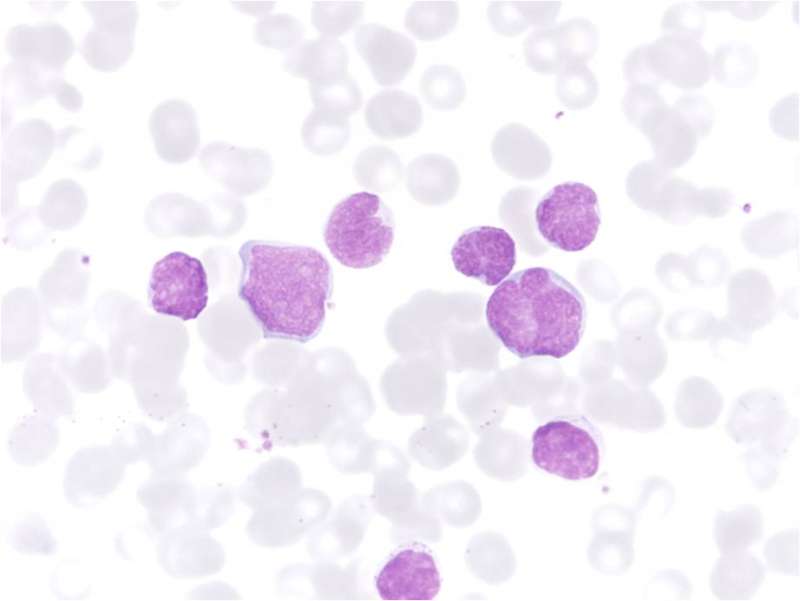An epigenetic lesion could be responsible for acute T-cell leukemia

Researchers from the Epigenetics and Cancer Biology Program (PEBC) led by Dr. Manel Esteller at the Bellvitge Biomedical Research Institute (IDIBELL) have discovered how an epigenetic lesion can lead to T-cell acute lymphoblastic leukemia. The article, published in the journal Leukemia, leader in the field of hematology, correlates the lesion with the activation of a powerful oncogen capable of malignizing this type of cells of the immune system.
Every two minutes, a person is diagnosed with a blood cell cancer - a leukemia, a lymphoma or a myeloma-, constituting 11% of all the tumors detected every year. T-cell acute lymphoblastic leukemia (T-ALL) creates alterations in the normal development of T lymphocytes, which are the cells responsible for defense against infections. This type of leukemia, which may appear in both children and adults, is characterized by its aggressive behavior. There are certain genetic alterations responsible for up to a third of the cases, but the molecular changes involved in the rest are still unknown.
"We have found that in 60% of acute type T leukemias, T lymphocytes present a loss of activity in a gene called NUDT16, whose normal function is to degrade other potentially dangerous genes. The lack of NUDT16 monitoring in these T lymphocytes allows a widely recognized cancer-causing gene, called C-MYC, to act freely and transforms these healthy cells into cancer cells", explains Dr. Esteller, ICREA Researcher and Professor of Genetics at the University of Barcelona.
"It is interesting to take into account the NUDT16 gene is not genetically damaged, so it could be reactivated with epigenetic drugs already used in other types of leukemia and lymphoma. It would also be worthwhile to test whether these leukemias, being so dependent on the C-MYC oncogene, would also be more sensitive to drugs targeting this protein", adds the IDIBELL researcher.
The research was carried out with the clinical collaboration of the Hematology Services of the Santa Creu and Sant Pau Hospital in Barcelona and the Germans Trias i Pujol Hospital in Badalona, as well as the Josep Carreras Leukemia Research Institute.
More information: C Anadón et al, Epigenetic loss of the RNA decapping enzyme NUDT16 mediates C-MYC activation in T-cell acute lymphoblastic leukemia, Leukemia (2017). DOI: 10.1038/leu.2017.99



















